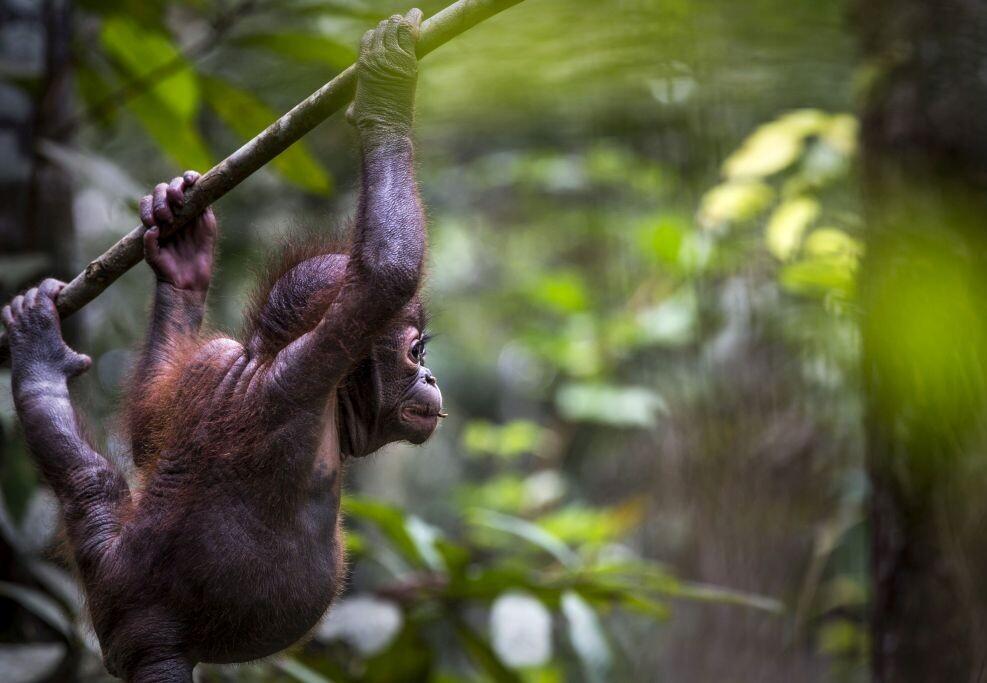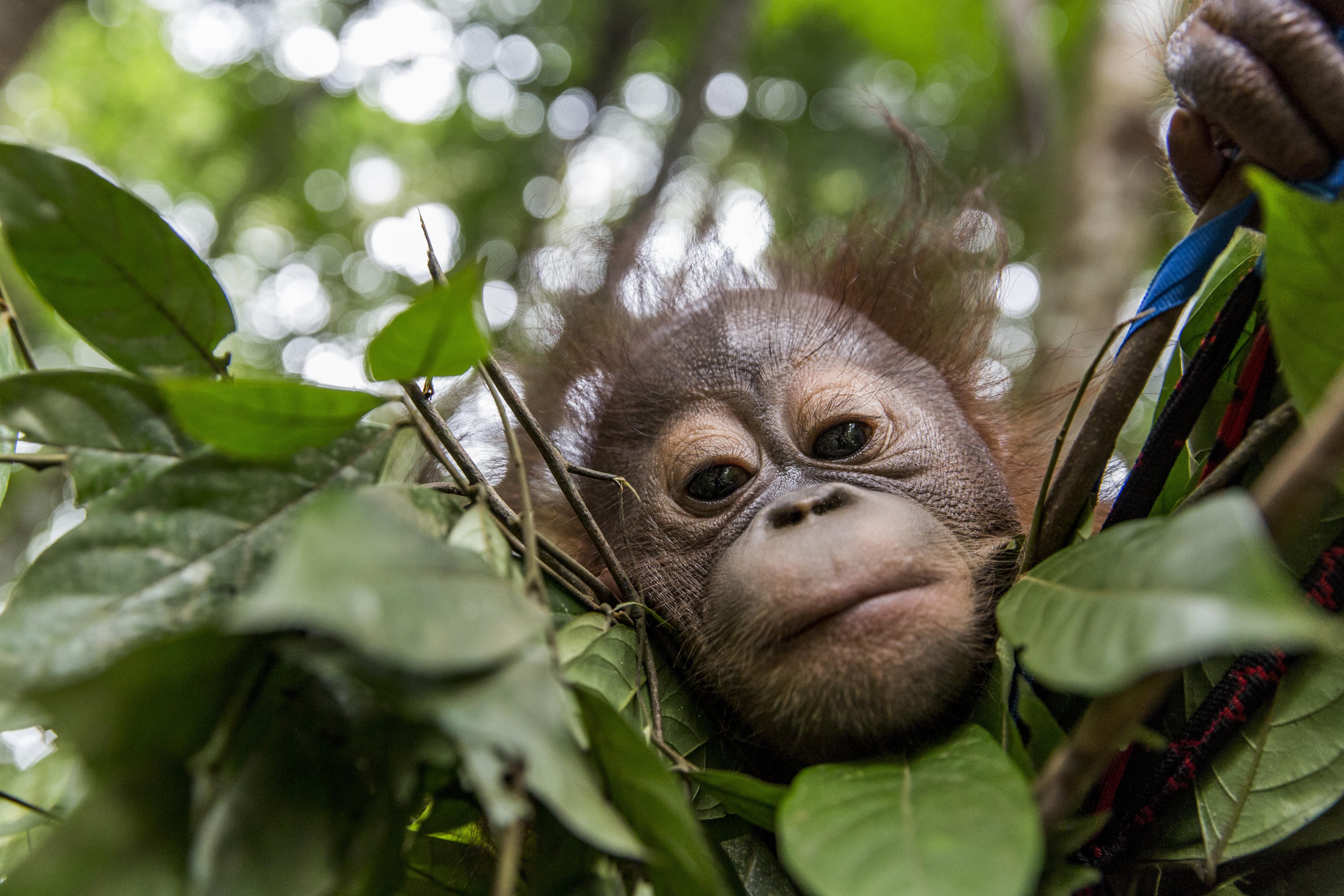
Saving the Orangutan
The Disappearing of the ‘Person of the Forest’
Orangutans are facing a huge risk of extinction due to deforestation and loss of habitat. This is the reason why these peaceful apes have been on the International Union for Conservation of Nature (IUCN) Red List for many years and why their population is still decreasing.

Land grabbing destroys the habitat of orangutans
The forest is the orangutan’s home, yet human activities are shrinking their world at an alarming rate. Between 1972 and 2015 around 10 million hectares of the Borneo orangutan’s habitat was destroyed, leaving just under half of their original distribution area. The main culprits of this are unsustainable practices such as oil palm monocultures, mining, and clear-felling logging; industries which are showing no signs of slowing down despite their irreversible impact on the planet and its wildlife.
The Indonesian government assigns protected areas of forest in which these activities are forbidden, and this serves to secure the remaining orangutan habitat. However, 75% of orangutans on Borneo live outside of these protected areas. This means that the orangutan population is plummeting daily, with an estimated 100,000 Bornean orangutans lost between 1999 and 2015 (an average of 17 a day!). Because orangutans only give birth once every 6-8 years, each loss can have devastating effects for generations to come.
As their habitat shrinks, orangutans struggle to find food, as they would typically roam long distances in search of seasonal fruit. The lack of available food means that they often ‘trespass’ on human settlements which have encroached upon their habitat. This leads to conflict with locals and being killed to protect crops.
It is difficult to estimate just how many orangutans die as a result of these interactions, but one study estimates that between 1,950 and 3,100 are killed every year in Kalimantan (Indonesian Borneo) alone.
The Loss of a Mother
As a result of their shrinking habitat, orangutan mothers are increasingly confronted by human beings. Many apes do not survive these encounters, and their children become orphans. This makes their prospect of survival very slim, as orangutans rely on their mothers – for protection, comfort and to show them how to thrive in the jungle.
Like humans, and other great apes, most orangutan behaviours are not innate; they are learned. This means they need years of guidance before they can build a sturdy nest to sleep in the treetops; before they have the skills to identify and evade predators; and before they can be sure that the fruit, they choose to eat is delicious and juicy, and not poisonous; and how to use tools to crack open succulent fruity pulps hidden behind rock-hard shells. Given that some 15,000 plant species exist on Borneo, it should come as no surprise that the loss of a mother leaves orangutan babies feeling terrified and helpless.

The ORANGUTAN FOREST SCHOOL
The ORANGUTAN FOREST SCHOOL, conducted by our partner Yayasan Jejak Pulang (meaning ‘return home’), in cooperation with the Indonesian Ministry of Forestry, is where the rescued orangutan orphans, confiscated by the Authorities, are rehabilitated. There they learn all the skills they need to be able to return home to the wild once they are prepared.
Twelve orphans (seven males, five females) from the ages of just 3 to 13 years make up the first cohort of pupils at the 100-hectare FOREST SCHOOL, led by Dr Signe Preuschoft of FOUR PAWS, a primatologist with 20 years’ experience working with great apes.
With a team of ‘foster mothers’ we attempt to impart the knowledge the orphans need to survive on their own in the wild. The bond between a mother and a child can never be replaced, but the aim of the project is to give the orangutans the best possible chance of surviving, thriving, and eventually reproducing so that they can create an unshakable bond with their own child.
Read more about the FOREST SCHOOL here.






